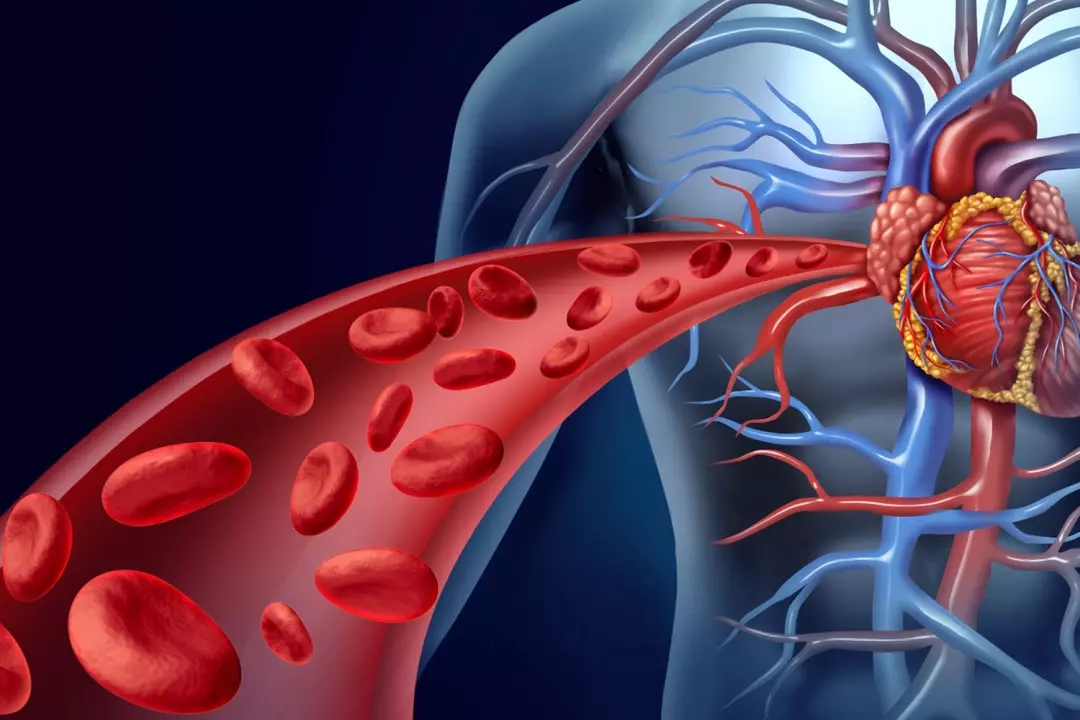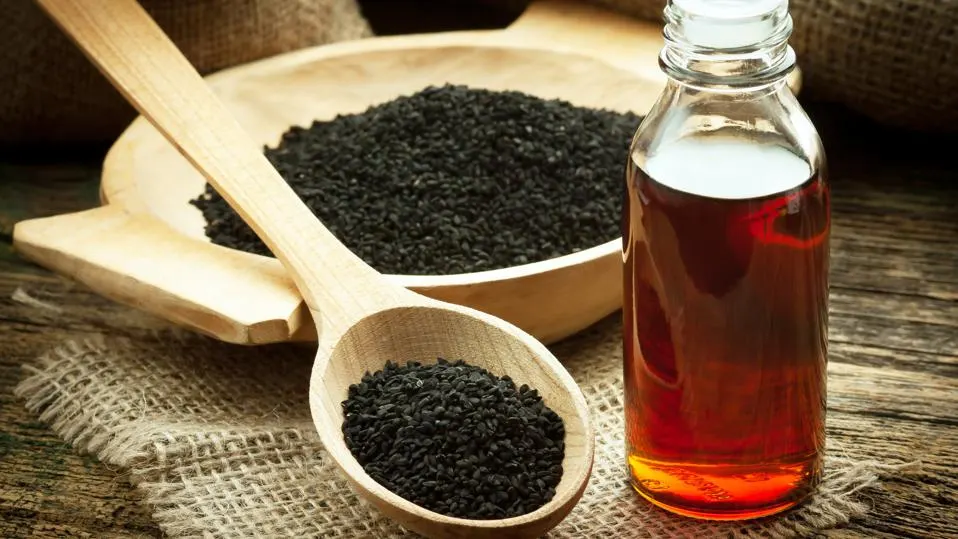Black pepper, often called the “king of spices,” has been used in culinary and medicinal traditions for millennia. The essential oil extracted from black pepper—often called black pepper oil or black pepper essential oil—is gaining popularity in the health field due to its warm aroma, skin-applied effects, and numerous purported health benefits. The many benefits of black pepper oil include pain relief, stress reduction, improved digestion, increased blood circulation, improved skin health, anti-inflammatory and antioxidant properties, relief from muscle pain and arthritis, and even regulation of blood cholesterol.
In this essay, Kanha Nature Oils will analyze all the claims, review the science behind them, examine the mechanisms and precautions, and consider how black pepper oil can fit into an overall healthy lifestyle.
1. Understanding Black Pepper Oil — Composition, Origins and Mechanism of Action

To appreciate how black pepper oil works, it helps to understand its origins and key constituents. The spice comes from the dried unripe fruit (peppercorns) of the plant Piper nigrum. Among the principal compounds is piperine, the alkaloid responsible for the pungency of black pepper.
In essential‐oil form, black pepper oil is extracted (commonly by steam distillation) from the peppercorns.
The oil exhibits warming, circulatory‐stimulating and aromatic properties. For example, one aromatherapy source noted: “Therapeutically … Black Pepper Oil helps to improve circulation and can help to ease the pain of aching muscles.”
Mechanistically, several plausible routes emerge:
Anti‐inflammatory activity: Piperine and other minor constituents appear to modulate inflammatory pathways and oxidative stress.
Circulation and warming effect: The warming (thermogenic) effect of topical application may help increase blood flow to a locale, aiding removal of metabolic by-products and supporting tissue repair.
Digestive support: Some studies show black pepper or piperine affects gastrointestinal motility, enzyme secretion and gut-brain signalling.
Antioxidant and absorption‐enhancement: Piperine has been shown to enhance the bioavailability of other nutrients/compounds, and to act as antioxidant scavenger of free radicals.
Thus, the combination of warming circulatory effect + anti‐inflammatory/antioxidant actions + digestive/absorption support provides a rationale (though not always full clinical proof) for the broad spectrum of claimed benefits.
2. Pain Relief, Muscle and Joint Support

One of the more compelling areas for black pepper oil is topical pain relief — especially muscle aches, joint discomfort and mild arthritic conditions.
Because black pepper oil produces a warming sensation when applied (diluted) topically, it may distract the nervous system from pain (a “counter‐irritant” effect), increase local circulation, and help clear metabolic by‐products associated with micro‐trauma in muscles. Sources state: “When diluted and applied topically, black pepper oil benefits muscles and joints by warming the area to provide relief and ease discomfort.”
3. Stress, Anxiety and Emotional Well-being

Another interesting dimension is the aromatic effect of black pepper oil on stress and the nervous system. One study examined the impact of black pepper aroma on acute stress responses in humans: inhalation of black pepper aroma suppressed the acute stress response in the autonomic nervous system (ANS) under cognitive stress. PMC
Furthermore, companies selling the oil highlight its “warm, spicy” aroma that helps “ease mental fatigue and soothe irritability.”
From a practical perspective, olfactory stimulation (smell) can impact mood, alertness, and anxiety via limbic system activation. The warming, spicy scent of black pepper oil may help individuals feel more grounded, alert but also relaxed.
Therefore, incorporating black pepper oil into an aromatherapy routine (e.g., diffused in a room, or a couple of diluted drops on a cotton pad inhaled slowly) may aid stress reduction when combined with good practices like breathing exercises or mindfulness.
4. Digestive Health and Gastrointestinal Function

Digestive complaints — such as bloating, gas, sluggish digestion, irritable bowel symptoms — are frequently cited in the context of black pepper oil use. According to the sources: “Depending on the dosage, researchers have found that black pepper oil can produce both antispasmodic effects and spasmodic reactions. This means the oil is able to relax tense muscles and spasms and reduce painful cramps and in other circumstances stimulate muscles into action.”
Additionally, black pepper and piperine appear to influence gut-brain signalling and GI motility, suggesting potential benefit in conditions such as irritable bowel syndrome (IBS).
Mechanistically, improved circulation in the abdomen (via topical application) could enhance digestive efficiency, while systemic absorption might boost enzyme secretion or nutrient absorption. Sources also note that the oil is rich in minerals and vitamins like vitamin A, K, calcium, potassium, selenium, which support skin, soft tissues, bone health — although these claims refer more to pepper generally than specifically to the oil.
5. Improved Blood Circulation and Cardiovascular-Related Effects

One of the hallmark claims of black pepper oil is improved circulation — which underpins many other benefits (pain relief, skin health, detoxification). Sources indicate that black pepper oil “has been shown to boost circulation and improve blood flow, flushing away toxins and excess fluids in the tissues.”
In addition, the piperine content in black pepper has been shown (in animal studies) to reduce blood pressure and favourably influence lipid profiles (cholesterol and triglycerides). For example: “In a randomized, double-blind, placebo‐controlled clinical trial … daily supplementation with five milligrams of piperine for 12 weeks led to significant improvements in lipid profiles.”
Thus, while the essential oil per se may not have exactly the same measured effects as isolated piperine compounds, the circulatory boosting and warming effect of topical or aromatic use may complement cardiovascular wellness.
What does improved circulation imply in practice? Better oxygen and nutrient delivery to tissues, faster removal of waste metabolites, potentially improved skin tone and less fluid stagnation in limbs, and possibly better joint/muscle recovery.
6. Skin Health and Cosmetic Applications

Black pepper oil is increasingly used in skin-care and cosmetic blends for its warming, purifying and antioxidant‐rich qualities. According to one source: “Black pepper essential oil is a powerful anti-bacterial and anti-ageing agent. It helps in flushing out the toxins present in our body. … It is an effective skin purifier which eliminates toxins, impurities and bacteria from the skin leaving it more supple and radiant.
Another article notes that among its many benefits “Black pepper oil contains many antioxidants and piperine. The ingredients combat oxidative stress, stimulating tissue remodeling and reducing free radicals.”
In skin conditions where circulation and micro-vascular supply are impaired (dull complexion, dry skin, early signs of ageing), inclusion of black pepper oil (diluted) into a massage or facial blend might be beneficial — again, as part of a holistic skincare regimen.
7. Anti-Inflammatory, Antioxidant and Metabolic Benefits.
The broad claim that black pepper oil helps with inflammation, oxidative stress and cholesterol control deserves closer inspection.
Anti‐inflammatory effect: Piperine has shown anti‐inflammatory effects in various preclinical studies. Black pepper oil therefore inherits part of this potential.
Antioxidant effect: Black pepper contains antioxidants that help scavenge free radicals, reduce oxidative damage, and thus support long‐term tissue health.
Cholesterol / lipid profile: The aforementioned human trial with piperine supplementation found reductions in total cholesterol, LDL (bad cholesterol), triglycerides, and an increase in HDL (good cholesterol).
While these findings are promising, a few caveats must be noted:
Many studies refer to black pepper extract or isolated piperine, rather than essential oil per se.
The essential oil application (topically or aromatically) may not deliver the same systemic dosage as an oral supplement.
Human large-scale randomized trials specifically with black pepper essential oil are limited.
The oil is not a replacement for lifestyle changes (healthy diet, exercise, adequate sleep) in managing cholesterol or cardiovascular risk.
Nevertheless, when viewed as part of a holistic plan, using black pepper oil (topically/diffused) may offer supportive benefits — in combination with diet rich in whole foods, reduction of saturated fats and refined sugars, regular physical activity, and monitoring of lipid profiles.
Practical recommendation: For individuals with mildly elevated cholesterol, incorporate black pepper (whole or oil form) as part of spice use in cooking, and consider topical oil blends for circulation support – but under guidance and with medical oversight.
8. Usage Guidelines, Safety, and Best Practices

Given that essential oils are potent and concentrated, proper usage of black pepper oil is crucial for safe and effective outcomes.
Dilution: Always dilute black pepper essential oil before topical application. Typical ratio: 2-5 drops per teaspoon (5 ml) of carrier oil (like coconut, jojoba, almond) for general use. Some sources suggest up to 5 drops per 10 ml for muscle/joint massage.
Patch Test: Before applying widely, do a patch test (apply diluted oil to inner forearm, wait 24 hours) to check for skin sensitivity or allergic reaction.
Avoid Undiluted Use: Undiluted application may cause burning sensation, redness or skin irritation — especially on sensitive skin, broken skin or near mucous membranes (eyes, nose, mouth).
Aromatherapy / Inhalation: For stress-relief or respiratory support, a few drops in a diffuser or inhalation from a cotton pad may be sufficient. Some studies found inhalation of black pepper aroma helped reduce cigarette cravings and anxiety.
Internal Use: The ingestion of essential oils is controversial and should only be considered if the product is food-grade, under professional guidance, and in very small amounts. Some sources caution that internal use may be unsafe depending on concentration and individual health.
Pregnancy, Nursing, Children, Medical Conditions: If pregnant, nursing, suffering from chronic illness, or using medications (especially blood thinners or hypotensive drugs), consult a qualified healthcare practitioner before using black pepper oil.
Environmental & Storage Considerations: Store essential oils in dark glass bottles, away from heat and light; keep out of children’s reach. Some oils may be flammable.
9. Integrating Black Pepper Oil into Daily Wellness Routines

Here are some meaningful, practical ways to integrate black pepper oil into a daily wellness routine — always in conjunction with an overall healthy-lifestyle plan (diet, exercise, hydration, rest).
Massage for muscle/joint relief: After a workout, dilute 3–5 drops of black pepper oil in 10 ml of carrier oil. Warm the oil slightly, then apply to areas of stiffness or soreness. Use gentle circular massage and possibly a warm compress before/after.
Aromatherapy for stress: Diffuse 4–6 drops of black pepper oil in your diffuser, optionally combined with lavender or frankincense for mood-balance. Use while reading, working or relaxing in the evening.
Digestive support: After a meal, massage a diluted blend into the abdominal area or inhale the aroma for digestive ease. Also, ensure you are consuming enough fibre, hydration and movement (walking) to support digestion.
Skin/beauty ritual: Once or twice weekly, add 1-2 drops of black pepper oil diluted in a carrier oil or unscented lotion, and gently massage into the face (avoiding the eye area) or body skin. The warming effect may boost micro-circulation and skin radiance — finish with a cool rinse or compress to soothe skin.
Spice inclusion and cooking: While this is not exactly the essential oil, regular use of black pepper in cooking helps you benefit from its systemic effects (piperine, antioxidants, enzyme stimulation). Combine with turmeric, healthy fats and vegetables to enhance nutrient absorption (for example, black pepper enhances curcumin bioavailability).
Circulation-boosting routine: For individuals who sit for long periods (desk job), schedule every hour a 1-2 minute break: stand, stretch, walk briefly, and at end of day apply diluted black pepper oil massage to calves/feet to support circulation.
ESSENTIAL OILS IN AROMATHERAPY
Conclusion
In summary, black pepper oil presents a fascinating blend of traditional wisdom and emerging scientific support. From topical pain relief and muscle/joint support, through stress reduction and digestive benefits, to enhanced circulation, skin health and antioxidant action — the oil offers multi-dimensional benefits. The key lies in proper usage (dilution, patch testing, quality product), realistic expectations, and pairing with a holistic lifestyle.
For someone seeking natural adjuncts to support muscle/joint comfort, circulation in sedentary lifestyles, mild digestive disturbances, or skin radiance, a well-selected black pepper essential oil (diluted and used correctly) could be a valuable addition to their wellness toolkit. At the same time, it must be emphasised that this is not a substitute for medical care when required.
You May Also Like:
- 7 Best Essential Oils for Winter Skin Care and Know About Them
- 10 Amazing Health Benefits of Peppermint Oil You Need to Know
- Frankincense Oil for Pain: A Complete Guide to Natural Relief
Kanha Nature Oils
For more information contact: info@aromatherapyoil.in
Mobile Number: 9810805866






No comments:
Post a Comment